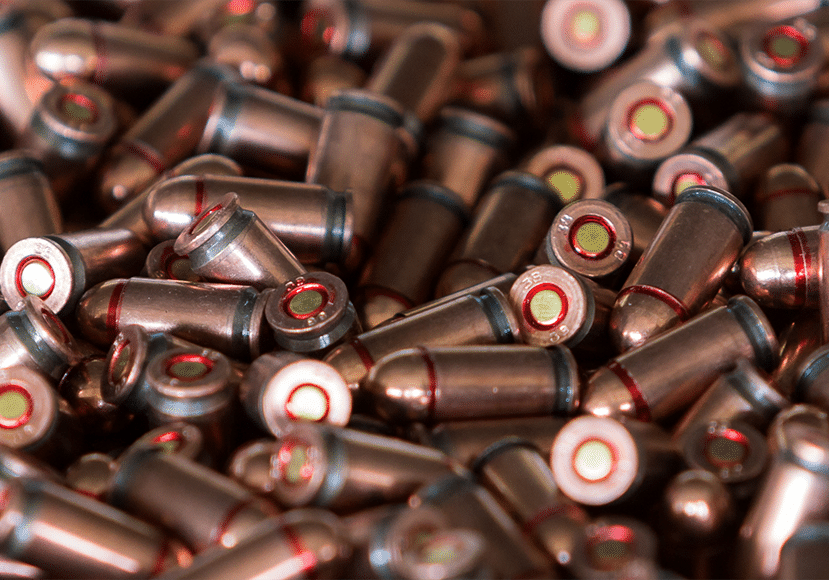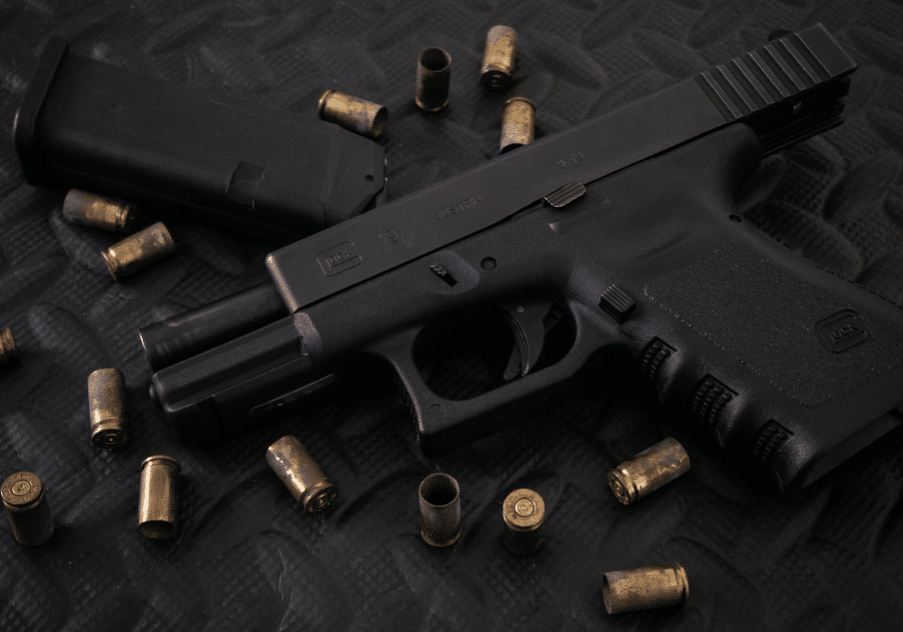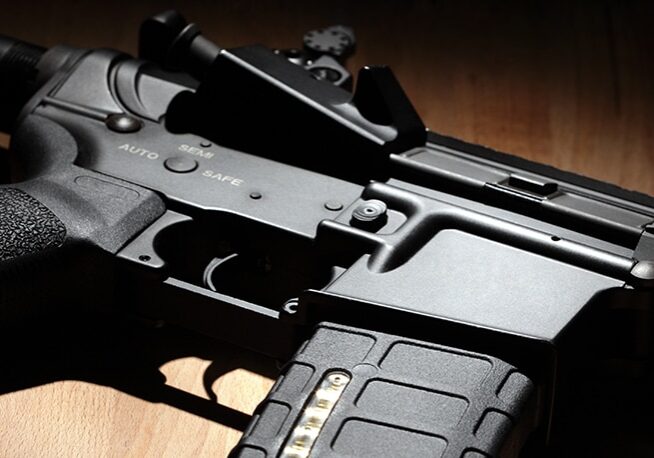24 Hunting Safety Tips to Follow

Every year, more than 10 million Americans go hunting. For most of us, it's not just a fun hobby or an ethical source of meat, but a way of life.
Though exceedingly rare, hunting accidents do take place every year. Below you'll find 24 hunting safety tips to help keep you safe while participating in this great pastime.
Hunting Safety Tips
I can think of no better way to start this list of hunting safety tips off than by refreshing you on the 4 universal gun safety rules:
4 Universal Gun Safety Rules
1) Treat all guns as if they are always loaded.
Even the most experienced gun owners are capable of forgetting when a firearm is loaded. In fact, their comfort around firearms can sometimes make mistakes more likely.
Though you should always be aware of the state of your firearms, treating them as if they are always loaded can prevent severe accidents in the event you're wrong about a firearm being unloaded. Internalizing this rule also helps to ensure you follow all other gun safety rules at all times.
2) Never let the muzzle point at anything you are not willing to destroy.
This is perhaps the most obvious gun safety rule, yet it's unfortunately still broken by some.
Always keep your firearms pointed in a safe direction. In particular, avoid pointing them at people, unless you're in a self-defense scenario. This includes never pointing a gun at yourself!
For hunting, familiarize yourself with the different ways to safely carry your firearms.
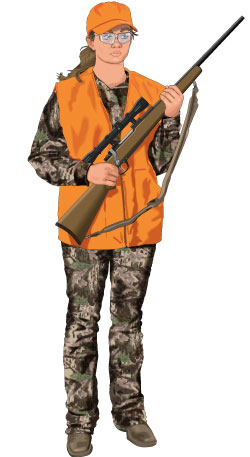
3) Keep your finger off the trigger until your sights are on target and you have made the decision to shoot.
Trigger discipline is another crucial aspect of firearm safety to practice. Do not place your finger on the trigger until you're ready and 100% sure you want to fire.
Modern triggers, especially those found in many rifles used for hunting, require a very small amount of force to be engaged. Practicing poor trigger discipline is very likely to lead to accidental discharge.
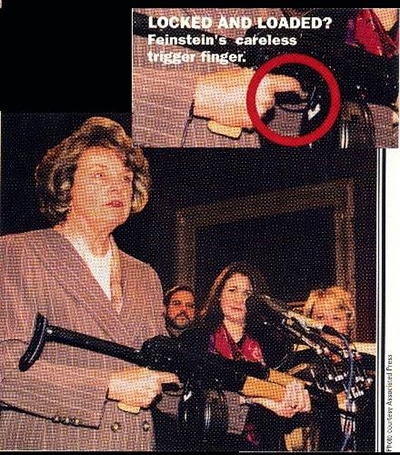
Don't be like Dianne Feinstein.
4) Be sure of your target and what is behind it.
Always be 100% sure to correctly identify your target. Though deer and people look nothing alike, I seem to see at least one case every year of someone shooting at a person they thought was an animal. Be sure to take an optic, spotting scope, or another magnification tool with enough power for the range at which you're hunting.
After you've identified your target, make sure there's nothing near or behind it that you don't want to destroy. You should only take shots that would still be safe if you missed or the bullet overpenetrated your target (though you should only take shots when you're confident you'll hit your target). This also means having a safe backstop.
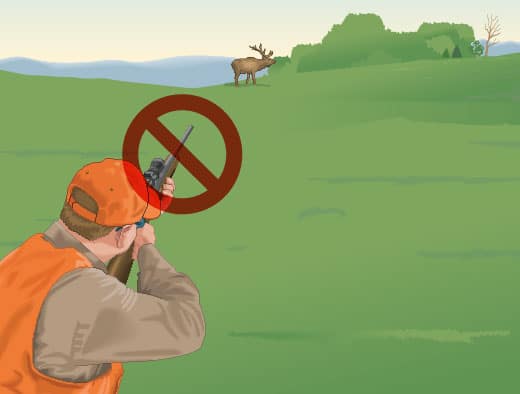
Safe Hunting Backstop - Hunter Ed
General Gun Safety Tips
Before getting into hunting specific safety tips, there are some general gun safety tips that I think are always important to follow.
5) Always wear ear and eye protection.
Shooting glasses help protect you from routine dangers like ejected casings, but also rare and serious events like catastrophic failure of your firearm.
Nearly all firearms are loud enough to damage your ears, with most guns used for hunting being among the loudest. Always wear ear protection and even consider doubling down with both in-ear and over-ear protection.
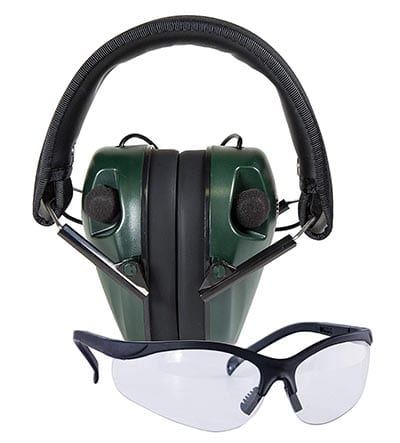
6) Know your firearm.
Familiarizing yourself with your firearms will not only help increase the likelihood of successful hunting but also help keep you safe.
Always be sure to know how to use and maintain your guns.
It's particularly important to know how to handle malfunctions of your firearm safely.
7) Use the correct ammunition for your firearms.
Always be sure to use the correct caliber of ammunition for your firearms. Failing to do so can result in catastrophic failure to your gun and injury or even death to you.
You should always read the owner's manual of your firearm to be sure what ammo is safe to shoot.
8) Never handle firearms under the influence. 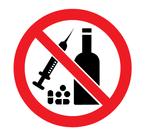
Alcohol and drugs do not mix with firearms. In most parts of the world, it's even illegal to shoot guns under the influence.
Keep in mind that prescription drugs may also affect your ability to handle weapons safely.
9) Don't handle firearms when in a bad mental state.
Depression and anger are correlated with suicide and homicide, so you should never handle firearms if you're in a bad mental state.
Even less extreme moods, like being excessively nervous or bored, can lead to unsuccessful hunting or dangerous practices.
10) Don't rely on your gun's safety.
Though you SHOULD always have your safety engaged before deciding to shoot, you should NOT use this as an opportunity to forget other important gun safety rules. Always follow proper gun safety even when your guns in "safe."
11) Be sure that your barrel is not obstructed before shooting.
Even relatively minor barrel obstructions can cause serious issues. Always be sure that your barrel is clear of any obstructions, but first ensure that your firearm is unloaded. Never look "down the barrel" (never look from where the projectile exits your barrel).
Consult your owners manual to see exactly how to check that the barrel is clear safely.
12) You can't safely use an unsafe gun.
Guns in improper working condition can not safely be used. If you suspect any issues with your firearm, take it to a certified gunsmith.
13) Store your firearms securely.
Unless there are specific laws in your area on gun storage, the decision of how to store your firearms rests on your shoulders. At a minimum, I'd always recommend keeping them in a secure gun safe.
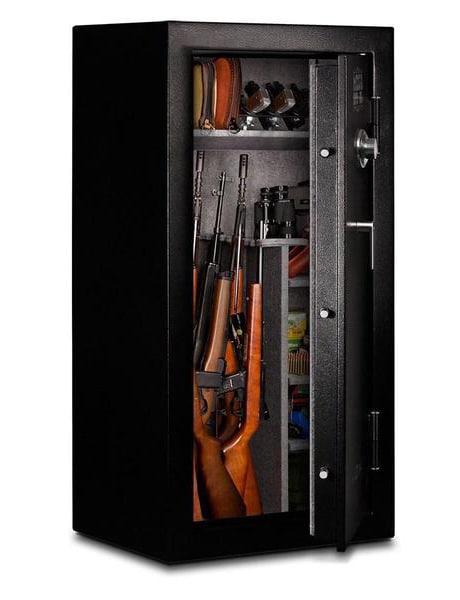
Now that I've covered some general gun safety tips, here are some additional tips more specific to hunters.
14) Know the Range of Your Firearm
Rifles, in particular, can be lethal to great distances. In addition to knowing your backstop and what lies beyond your target, it's a good idea to factor in the range of your weapon.
15) Never climb a fence, tree stand, or another obstacle with a loaded firearm.
When out hunting, you're likely to face some obstacles that require climbing. Before doing any climbing, make sure your gun is unloaded.
16) Unload firearms before riding vehicles, including off-road vehicles like ATVs.
This is particularly important when riding over rough terrain.
17) Wear orange to be visible by other hunters.
Many states require you to wear hunter orange, but it's a good idea regardless of any requirements to keep you visible to other hunters.
18) Take a GPS or at least a compass with you to avoid getting lost.
Depending on where you're hunting, it could be very easy to get turned around. While GPS is the best way to guarantee that you find your way back, you should at least take a compass with you. I'd also recommend taking a compass as a backup in case you have issues with your GPS.

19) Know the area where you're hunting.
Prior to hunting, it's always a good idea to familiarize yourself with the area you plan to hunt. This both keeps you from getting lost and can help increase the success of your hunt.
20) Tell someone where you're going and when you plan to return.
Before you go, be sure to tell someone where you're going and when you plan to return. In the event you do get lost, this will aid in your rescue.
21) Dress appropriately for the weather.
Dress appropriately for the weather and be sure to bring extra clothes for all possible weather conditions if you're going on an extended hunting trip.
22) Bring all the gear and supplies that you need.
Often, you'll be fine with limited supplies like your gun, water, and first aid kit.
For long hunting trips, however, you may need to bring more gear and supplies. Lugging around unneeded weight is no fun, but I'd error on the side of having everything I may need.
This can include:
- Hunting License and Permits
- Firearms
- Ammunition
- Spotting Scopes, Binoculars, Rangefinder, etc.
- Tents
- Sleeping Bags
- Rain Gear
- Knife
- Fire Starter/Lighter
- Change of Clothes
- First Aid Kit
- Plenty of Water
- Food
- Flashlights/Headlamps/Weapon Lights
- Rubber Gloves
- GPS
- Compass
- Trash bags/Game Bags
- Hand Sanitizer/Wipes
- Toilet Paper
- Game Call
23) Always keep a cell phone or satellite phone with you.
Though there could be a very unfortunate firearm accident that requires you to call for help, injuries from falling or tripping are much more common.
Having either a cell phone or satellite phone to call for help is very important. If in an area without cell service, opt for a satellite phone.
24) Know all laws and regulations. Get all required licenses and permits.
This last tip is more to keep you safe from getting in legal trouble.
Research and follow all laws and regulations for the area you're hunting in. Only hunt when and where you're allowed to hunt. Acquire all licenses and permits that you need to hunt legally.
Conclusion
That wraps up our list of hunting safety tips.
Stay safe out there and happy hunting!


